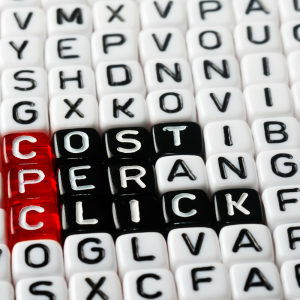Pay-per-click (PPC) advertising is a staple of modern digital marketing, but success with PPC hinges on your ability to work around Google’s algorithms. Google regularly updates their search result algorithms to provide users with the most relevant results for their searches. Your goal as a marketer is to make sure your PPC ads land in as many relevant searches as possible.
 PPC can be frustrating and challenging, but offers a tremendous return on the investment when properly done. PPC should be a cornerstone of any online marketing strategy, and this requires staying up-to-date with the latest algorithm changes from Google.
PPC can be frustrating and challenging, but offers a tremendous return on the investment when properly done. PPC should be a cornerstone of any online marketing strategy, and this requires staying up-to-date with the latest algorithm changes from Google.
Google’s Recent Changes
Early in March of 2018, Google rolled out a “broad core algorithm” update that affected millions of searches. Many websites’ rankings and result page appearances changed because of this update. While some pages noticed a significant drop in results ranking and subsequent user traffic, Google claims the latest update aimed to improve the performance of sites that were previously suffering undue strain and were under-rewarded for their efforts.
Google also recently came under fire for allowing “fake news” to proliferate in search results for trending topics, particularly in the political spectrum. The new algorithm changes seek to reward sites that publish well-sourced information with credible citations and punish sites that publish uncorroborated stories. Google is also facing scrutiny for its internal practices and apparent political stance, so it’s difficult to gauge how objective these changes will be in the future.
Google is also investing heavily into artificial intelligence (AI) in an effort to streamline the user experience and find search results faster, with more relevant answers to user queries and searches. Google AI is still in its infancy, but PPC advertisers should expect AI to have a huge impact on their PPC marketing campaigns in the near future.
How Can You Capitalize?
Thanks to the new AdWords interface and updated algorithm, it’s now possible to more precisely target your PPC ads for better returns. Instead of casting a wide net with inconsistent results, PPC advertisers can now focus their PPC ads to very specific searches and user criteria. PPC returns its value with clicks that follow through to sales, so ignored clicks or missed clicks cost advertisers money.
The new Google update means that credible sites with a strong link history and high engagement scores will continue to rank highly in searches. Under-performing sites may struggle to rank better in searches until they fix issues with their content and linking practices, but the golden rule of PPC remain the same: find out how to target your ideal customers’ searches to drive traffic to your website.